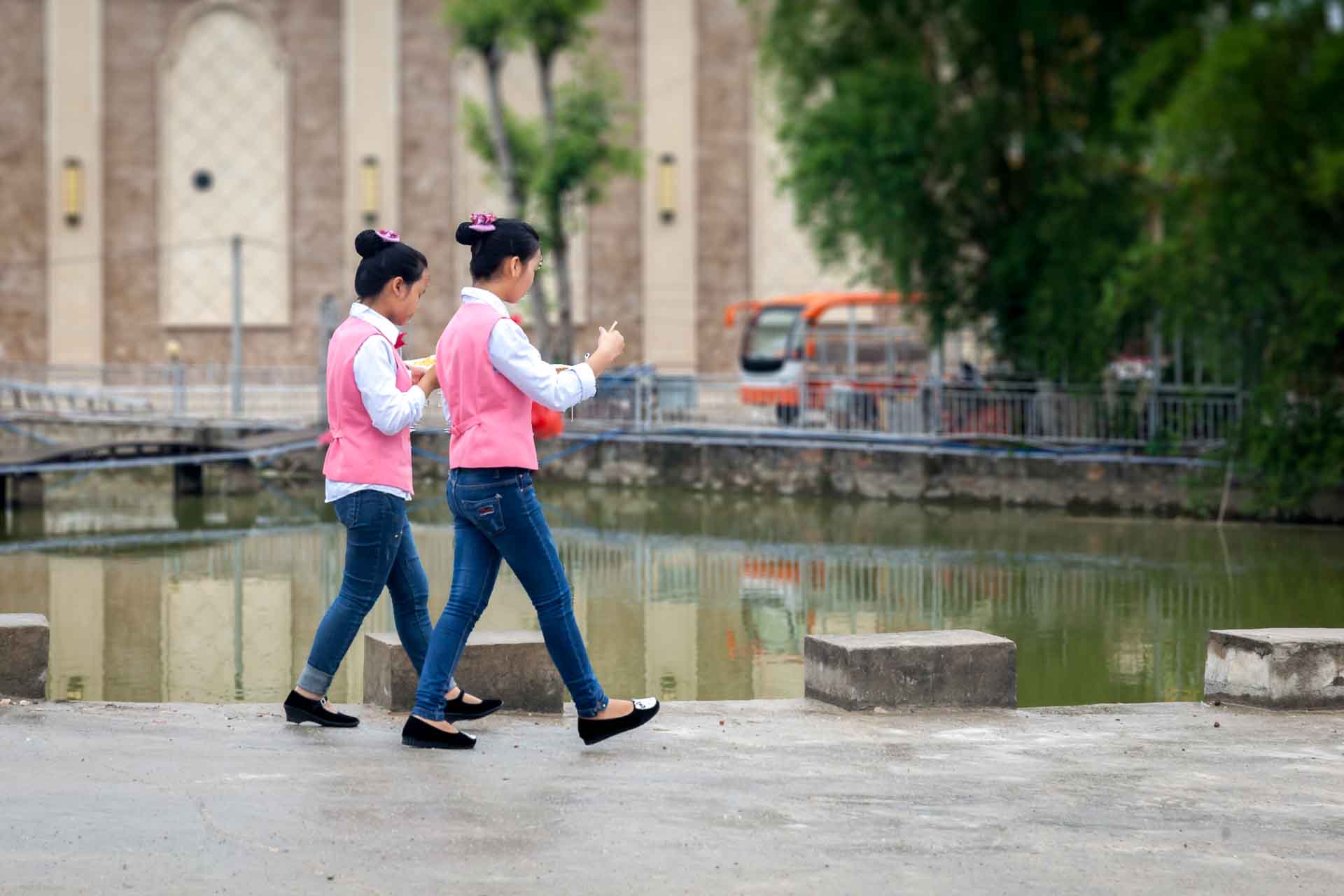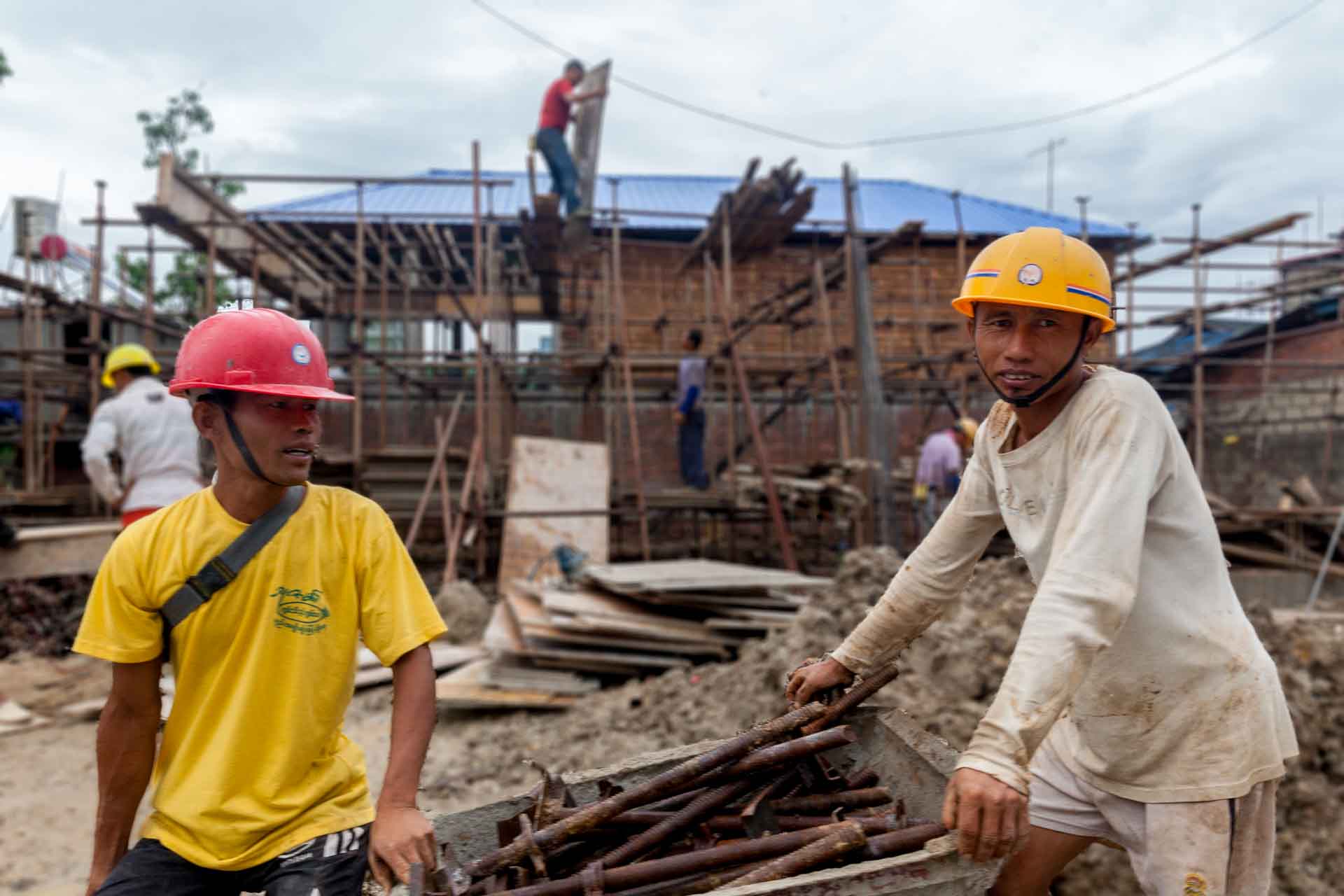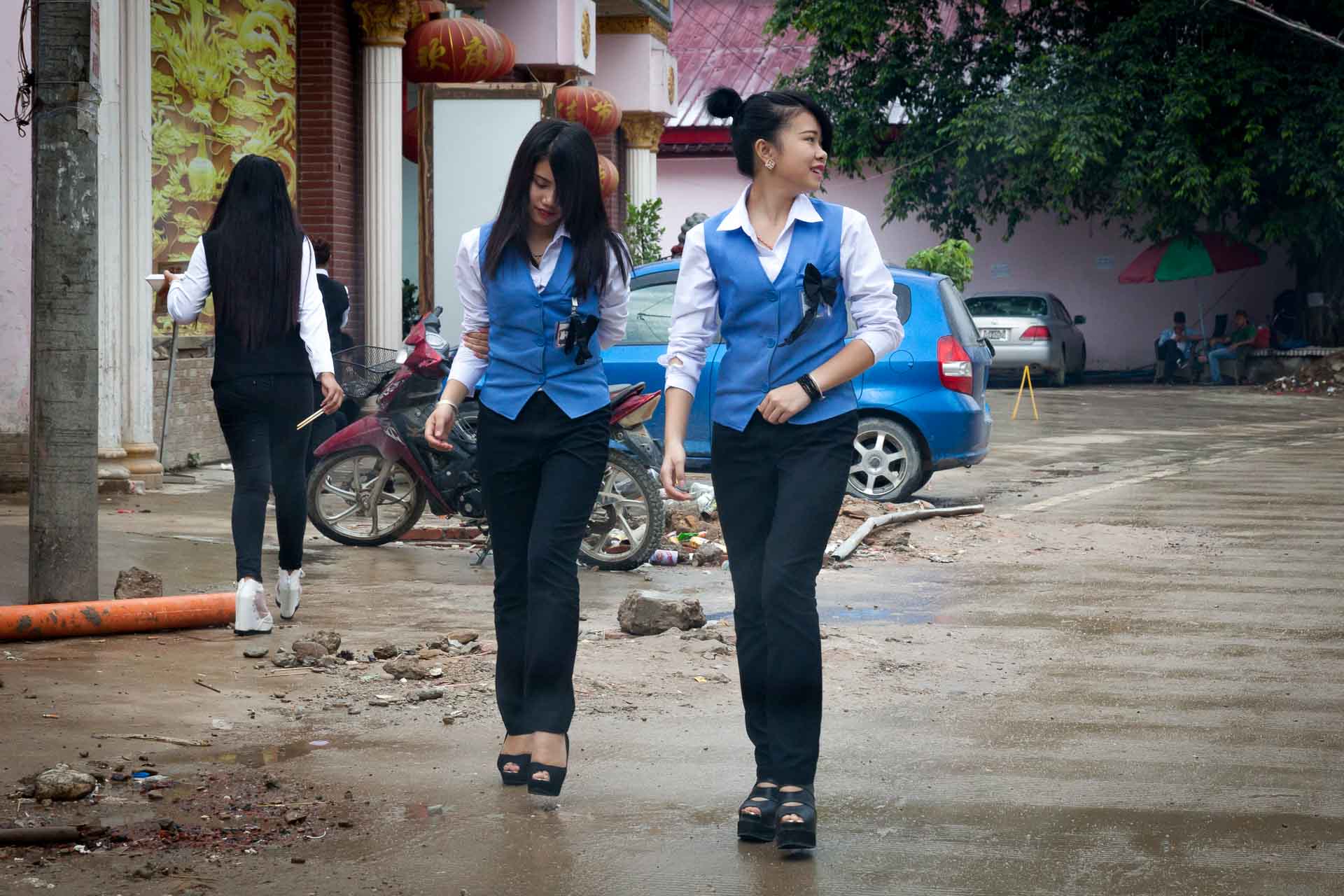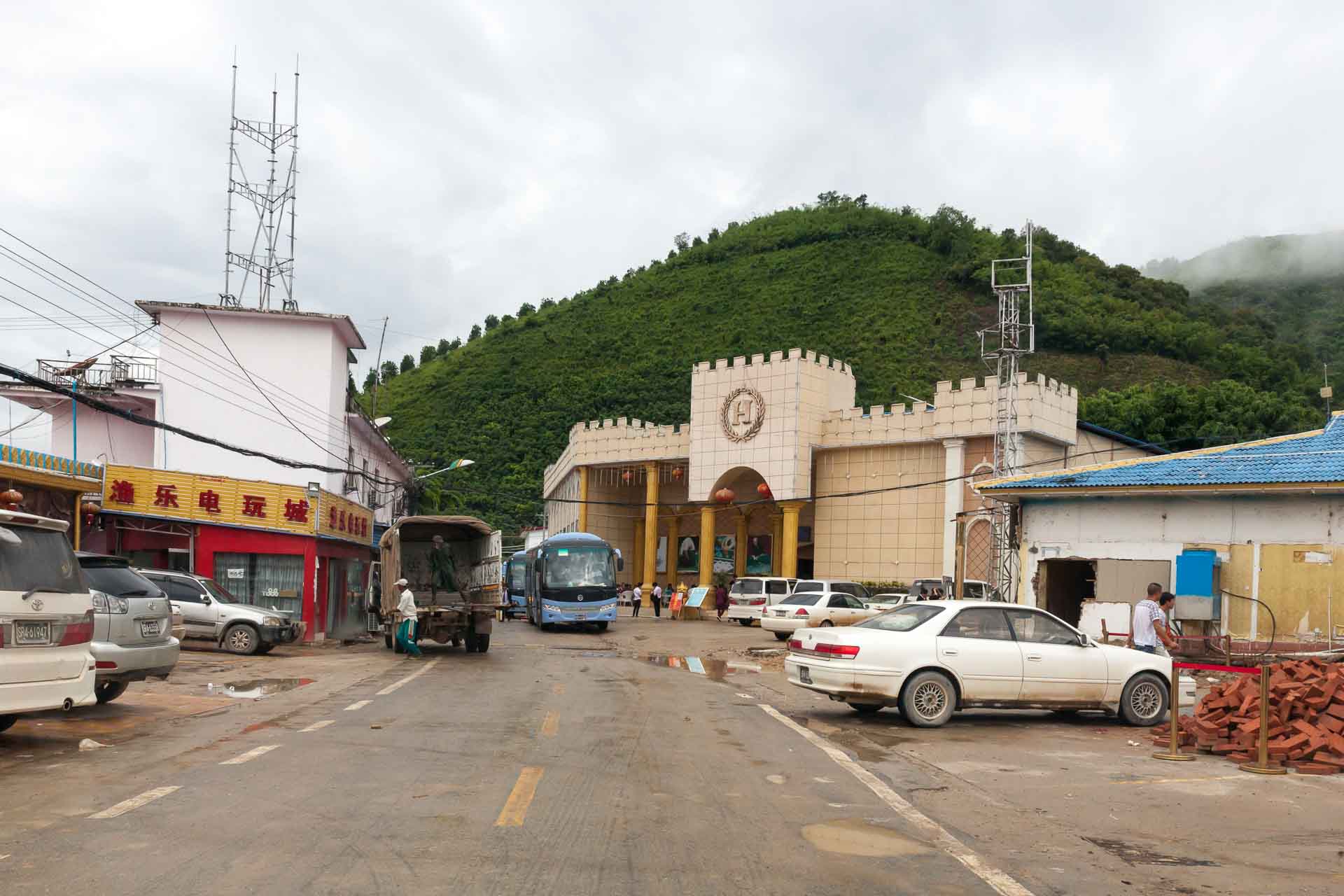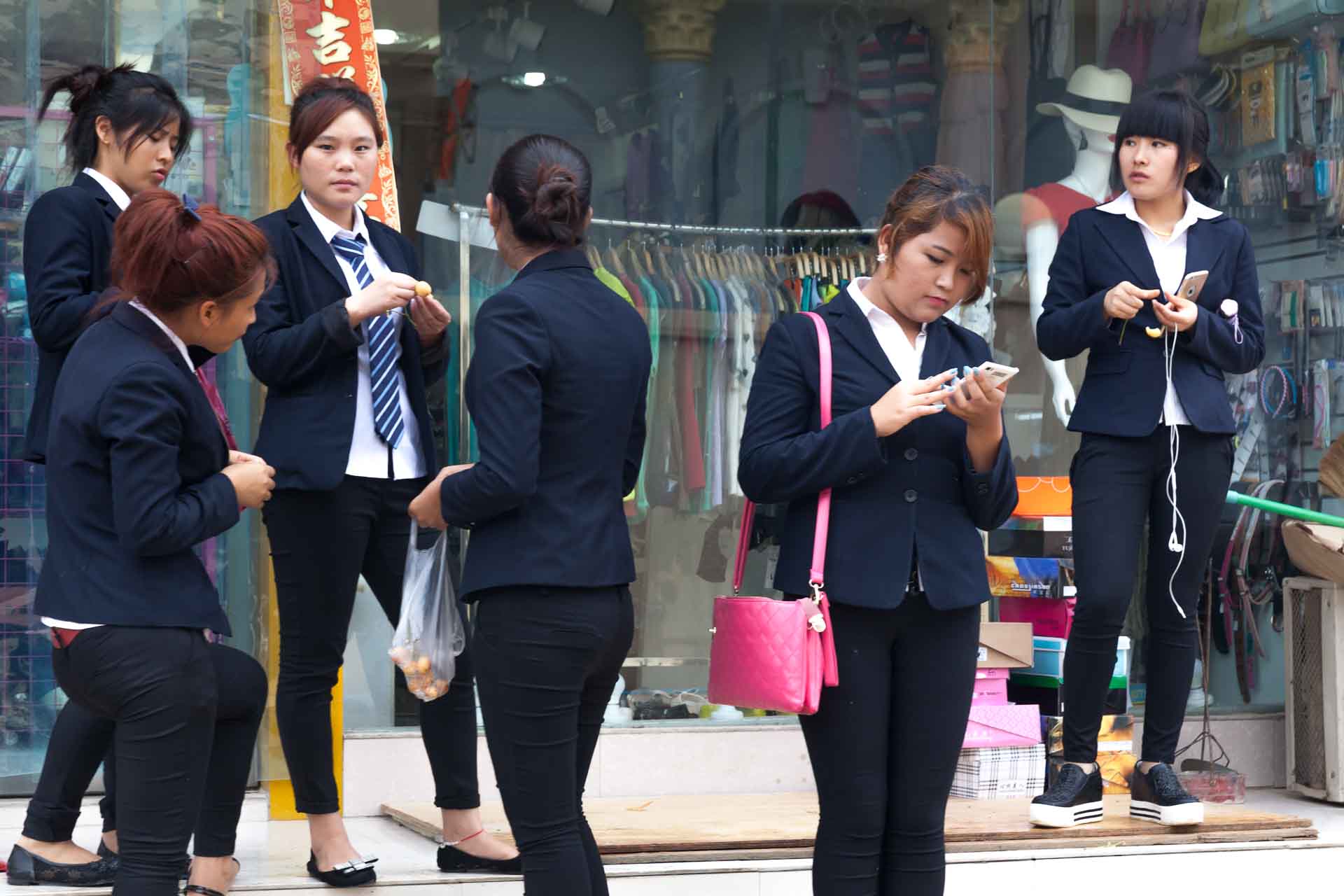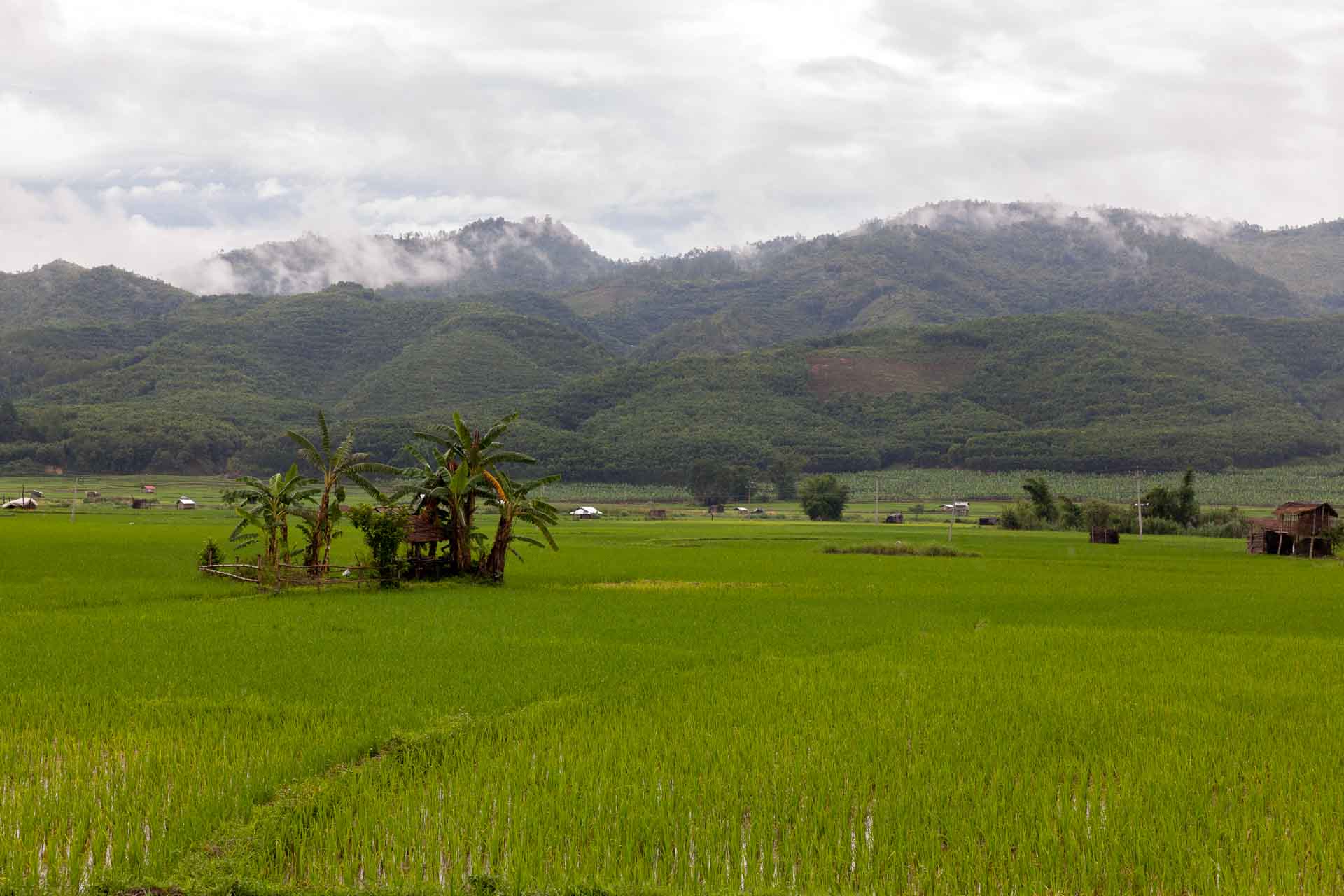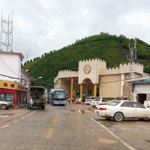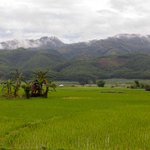Change of Shift
Early in the morning at the cluster of casinos south of Mong La, Myanmar’s Special Region 4. Casino staff are having a snack or a quick meal before starting their day or heading back to town.
Special Region 4 is a small autonomous strip of border territory in northern Burma. It is run by a Chinese named Lin Mingxian, a former commander of the Communist Party of Burma (CPB). When the CPB broke up in 1989, he established the National Democracy Alliance Army (NDAA), one of Burma’s many armed rebel groups. Soon thereafter, he signed a ceasefire agreement with the Burmese government and ever since, Mong La has rather focussed on profit than ideology: initially the opium trade, later casinos and more recently Chinese agribusinesses.
Mong La has received quite a bit of media attention and was mostly depicted as a place of vice and lawlessness amidst the jungle. This, however, is only one side of the story. Mong La looks and feels rather like an orderly Chinese city than a wild frontier. It is running on Beijing time, the Chinese Renminbi is the sole currency accepted, China Mobile the only network available, and the casinos have created jobs.
Most of the casino workers are young women from northern Burma, almost exclusively from non-Burmese minorities. They are quick to learn languages and speaking Mandarin is a precondition for work here. The casinos pay comparatively well. The young women in uniform earn around USD 300 per month, well above the average income in Myanmar.
How, then, to read the story of Mong La? As a tale of frontier capitalism with uneven outcomes? Or as a case within the larger story of China’s development reaching across the border? This is the question Alessandro Rippa and I are addressing in a longer photo essay forthcoming in Cross Currents in June.
Privacy Policy
Plain and simple: I take the principle of minimal data collection serious and try hard not to collect or process any personal data beyond the basics required to serve and maintain the website.
Specifically,
- We do not use cookies.
- We do not use third party analytics.
- There is no contact form that would allow you to enter personal data.
- We do not use advertising to run this website.
In order to serve this website, your IP address and information about your browser, operating system and screen resolution need to be collected and processed. theotherimage.com is a simple, handcrafted, static website hosted by Netlify. It uses fonts by Adobe Fonts (formerly Typekit). Both Netlify and Adobe automatically collect usage data, either generated by the use of this website or from the service infrastructure itself. This data is used for accounting and analytic purposes as well as for technical maintenance by these two companies. Neither Netlify nor Adobe use cookies to track you. Specifics can be found in their respective privacy policies.
The videos on this website are hosted by Vimeo. Depending on your browser configuration, Vimeo may use cookies and other tracking technologies as stated in their respective privacy policies.
If you have any questions about this privacy policy, please write to: Martin Saxer, LMU Munich, Department of Social and Cultural Anthropology, Oettingenstr. 67, 80538 Munich, Germany.
This privacy policy has been updated on 30 December 2018.
![[ the other image ]](/images/logo/toi-logo_2x.png)
